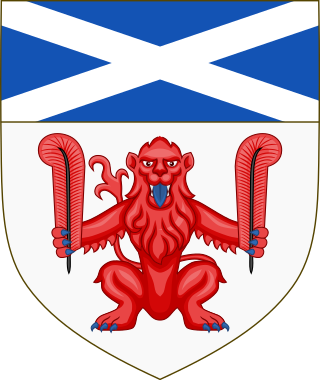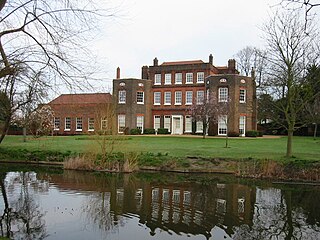
A command paper is a document issued by the UK Government and presented to Parliament.
The Dublin Gazette was the gazette, or official newspaper, of the Irish Executive, the British-controlled government in Ireland based at Dublin Castle, between 1705 and 1922. Like the London Gazette on which it was modelled, its strapline was "Published by Authority", and it published notices of government business, including proclamations, the granting of royal assent to bills, writs of election, appointments to public office, commissions and promotions in the armed forces, and awards of honours, as well as notices of insolvency, grants of arms or change of name. The most important notices were generally printed in both the Dublin and London gazettes.

The Stationery Office (TSO) is a British publishing company created in 1996 when the publishing arm of His Majesty's Stationery Office was privatised. It is the official publisher and the distributor for legislation, command and house papers, select committee reports, Hansard, and the London, Edinburgh and Belfast Gazettes, the UK government's three official journals of record. With more than 9,000 titles in print and digital formats published every year, it is one of the UK's largest publishers by volume.

The government of Ontario is the body responsible for the administration of the Canadian province of Ontario. A constitutional monarchy, the Crown—represented in the province by the lieutenant governor—is the corporation sole, assuming distinct roles: the executive, as the Crown-in-Council; the legislature, as the Crown-in-Parliament; and the courts, as the Crown-on-the-Bench. The functions of the government are exercised on behalf of three institutions—the Executive Council; the Provincial Parliament ; and the judiciary, respectively. Its powers and structure are partly set out in the Constitution Act, 1867.

The Clerk of the Crown in Chancery in Great Britain is a senior civil servant who is the head of the Crown Office.
The King's Printer is typically a bureau of the national, state, or provincial government responsible for producing official documents issued by the King-in-Council, Ministers of the Crown, or other departments. The position is defined by letters patent under the royal prerogative in various Commonwealth realms.

Lyon Clerk and Keeper of the Records is a legal and heraldic office in Scotland. The holder of this office is appointed by the Crown, and like the Lord Lyon King of Arms receives an annual salary. Lyon Clerk's duties include heraldic research, the preparation of papers, lectures and conducting and assisting with the preliminary business of application for a grant or matriculation of armorial bearings. This includes scrutiny of documents supporting the application. As Keeper of the Records the duties include maintaining the records of the Court of the Lord Lyon, overseeing the preparation of documents, allowing inspection of the Public Register of All Arms and Bearings in Scotland and other records, and issuing certified extracts when required. Until 1867 there was a Lyon Clerk Depute, and in 1986 Elizabeth Ann Roads became the first woman appointed to the office of Lyon Clerk and Keeper of the Records.

The Cook Islands are a constitutional monarchy within the Realm of New Zealand. Under the Cook Islands Constitution, the Sovereign in Right of New Zealand has been Head of State of the Cook Islands since 4 August 1965. The Sovereign is represented by the King's Representative; as such, the King is the de jure head of state, holding several powers that are his alone, while the King's Representative is sometimes referred to as the de facto head of state. The viceregal position is currently held by Tom Marsters.
The Edinburgh Gazette is a newspaper of record of the Government of the United Kingdom, along with The London Gazette and The Belfast Gazette. It is published by The Stationery Office (TSO), on behalf of His Majesty's Stationery Office (HMSO) in Edinburgh, Scotland. The Crown Agent is, ex officio, the Keeper of the Edinburgh Gazette.
The Belfast Gazette is a newspaper of record of the Government of the United Kingdom, along with The London Gazette and The Edinburgh Gazette. It is published by The Stationery Office (TSO), on behalf of His Majesty's Stationery Office (HMSO) in Belfast, Northern Ireland.

The monarchy of Barbados was a system of government in which a hereditary monarch was the sovereign and head of state of Barbados from 1966 to 2021. Barbados shared the sovereign with the other Commonwealth realms, with the country's monarchy being separate and legally distinct. The monarch's operational and ceremonial duties were mostly delegated to her representative, the governor-general of Barbados.
Crown copyright is a type of copyright protection. It subsists in works of the governments of some Commonwealth realms and provides special copyright rules for the Crown, i.e. government departments and (generally) state entities. Each Commonwealth realm has its own Crown copyright regulations. There are therefore no common regulations that apply to all or a number of those countries. There are some considerations being made in Canada, UK, Australia and New Zealand regarding the "reuse of Crown-copyrighted material, through new licences".
The King's Regulations is a collection of orders and regulations in force in the Royal Navy, British Army, Royal Air Force, and Commonwealth Realm Forces, forming guidance for officers of these armed services in all matters of discipline and personal conduct. Originally, a single set of regulations were published in one volume. By the mid 19th century, there were separate editions of the Queen's Regulations for the Navy and the Army, and there is now one for each of the United Kingdom's armed forces.
The Letters Patent, 1947, are letters patent signed by George VI, as King of Canada, on 8 September 1947 and came into effect on 1 October of the same year. These letters, replacing the previous letters patent issued in 1931, reconstituted the Office of the Governor General of Canada under the terms of the Constitution Act, 1867, expanding the governor general's ability to exercise the royal prerogative, thereby allowing her or him to use most of the "powers and authorities" lawfully belonging to the sovereign and to carry out an increased number of the sovereign's duties in "exceptional circumstances".

Elizabeth II was Queen of Ghana from 1957 to 1960, when Ghana was an independent sovereign state and a constitutional monarchy. She was also queen of the United Kingdom and other sovereign states. Her constitutional roles in Ghana were delegated to the governor-general of Ghana.

Elizabeth II was Queen of Trinidad and Tobago from the independence of Trinidad and Tobago on 31 August 1962 until the country became a republic on 1 August 1976. Her constitutional role as head of state was delegated to a governor-general, who acted on the advice of government ministers.

John Mayor (1735-1817) was an English brewer and politician who sat in the House of Commons between 1774 and 1782. He was the first superintendent of HM Stationery Office from 1786.
The Crown Office, also known as the Crown Office in Chancery, is a section of the Ministry of Justice. It has custody of the Great Seal of the Realm, and has certain administrative functions in connection with the courts and the judicial process, as well as functions relating to the electoral process for House of Commons elections, to the keeping of the Roll of the Peerage, and to the preparation of royal documents such as warrants required to pass under the royal sign-manual, fiats, letters patent, etc. In legal documents, the Crown Office refers to the office of the Clerk of the Crown in Chancery.

Letters patent, in the United Kingdom, are legal instruments generally issued by the monarch granting an office, right, title, or status to a person. Letters patent have also been used for the creation of corporations or offices, for granting city status, for granting coat of arms, and for granting royal assent.










